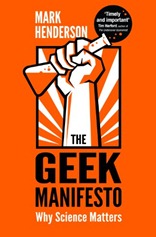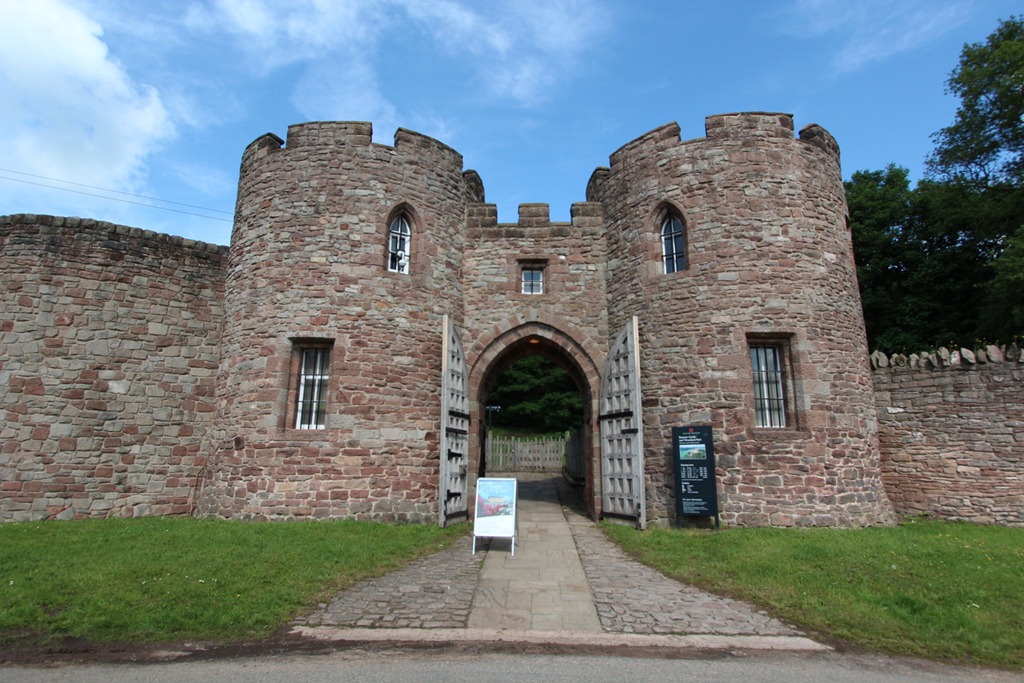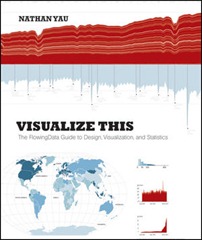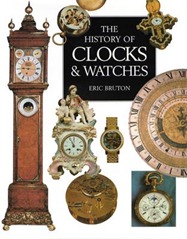Author's posts
Jul 02 2012
Book Review: The Geek Manifesto by Mark Henderson
 This review is of Mark Henderson’s book “The Geek Manifesto: Why Science Matters“. It starts with Simon Singh’s lengthy libel battle with the British Chiropractic Association, which sets the scene for the rest of the book.
This review is of Mark Henderson’s book “The Geek Manifesto: Why Science Matters“. It starts with Simon Singh’s lengthy libel battle with the British Chiropractic Association, which sets the scene for the rest of the book.
In some senses this is a book about “my people”, many of the events described were ones I watched unfold online. For example, I wrote back here, about David Nutt’s sacking from the Advisory Council on the Misuse of Drugs. I remember the Boots 10:23 homeopathy protests in which geeks overdosed on homeopathic remedies, I even got ever so slightly involved in Science is Vital. The acknowledgements go out to many people I follow on twitter, and the links to other books I have read, “Adapt” by Tim Harford and “Bad Science” by Ben Goldacre, are explicit. I’d also add “Freakonomics” by Steven D. Levitt and Stephen J. Dubner to this genre.
After the opening Simon Singh case there are chapters on the role of science in politics, government, the media, the economy, education, court, healthcare, and environmentalism. Random fact I picked up: only two scientists have appeared on the BBC Question Time programme in the last 8 years – somewhat shocking given the wide roster of the great and the good who appear on the programme. I liked the practical examples of reducing crime in Cardiff, led by Professor Jonathan Sheperd, a maxillofacial surgeon frustrated and distressed by the number of young people admitted through Accident and Emergency with severe cuts from pub brawls. He collected detailed evidence of incidents which he passed on to police, later publishing research on the outcome of this approach by comparison with a similar city without such intervention.
I also liked the stories from the University of Southampton on fibre optic research and Shankar Balasubramanian (at Cambridge University), whose gene sequencing company, Solexa was recently acquired for $600million. Too often scientists make the public assertion that spending money on research benefits the economy, but then say that you can’t possibly direct them into particular areas of research – the old blue skies argument on which I blogged here and here. These case studies are convincing on the benefits of longer term, university-based research.
The section on climate change and environmentalism fits somewhat with my opinions – in principle I am green but find the official face of the environmental movement (Greenpeace, Friends of the Earth, the Green Party, The Soil Association) difficult because they go beyond the environment to an anti-capitalist world view in which good science is optional; particularly in campaigns against genetically modified crops and nuclear power. However I don’t believe the Greens can be blamed for the, typically, right-wing opposition to the consensus on anthropogenic climate change. I wrote a bit about climate change here. This also touches a little on the Sense About Science organisation, one mentioned several times through the book, they are no doubt useful but I have my suspicions about some of their positions, particularly on climate change – this article in The Skeptic captures some of that unease.
The book is very well described as a manifesto: it’s aimed at the geeks of the title. It picks up on a theme of increased levels of activism amongst scientists, a growing skeptic movement and the newly formed comedy / science intersection (Dara O’Brien, Robin Ince and so forth). I’m a scientist, I’ve been a scientist for 20 or so years, and I’m undeniably geeky – I write programs for fun, yet I find the “geek” label uncomfortable.
There has been a twitter campaign to send this book to every single MP, all I can say is I hope they don’t read the second chapter. Henderson, a historian by training, seems rather overwhelmed by the forensic powers of scientists and dismisses the idea that anyone else might have them. I think his attitude is summarised in his reference to introducing more scientists to parliament which will apparently
“…rapidly raise the game of the non-scientists around them”
I’m a scientist, and I find this embarrassingly patronising. His remedy for bad science in the media is rather more subtle and nuanced than his approach to politicians. I think in the end, in politics, he highlights some of the important things – the need to engage with MPs rather than leave it to others; the need to engage early when positions are not set in stone and the need to recognise that MPs face other pressures: a recent Early Day Motion in support of homeopathy is a case in point: many MPs signed because they believed, that many of their constituents were passionately in favour of it, the support of Prince Charles probably helped them with their decision too.
The Behavioural Insights Unit in the Cabinet has a recent paper “Test, Learn, Adapt: Developing Public Policy with Randomised Controlled Trials” by Laura Haynes, Owain Service, Ben Goldacre and David Torgerson (pdf) which is exactly the approach to government that Henderson is promoting. It perhaps highlights that a frontal assault on MPs is not the way in: the civil service is important. A second strand, which I would propose, is casting the whole experimenting thing into a business context. One of my own political preferences is for governments that do things competently (regardless of political tendency), in business this might be labelled something like “Excellent Execution”. Doing things competently isn’t a particular skill of scientists: it’s something everyone can aspire to, and scientists by no means have a monopoly on the routes to competence, or even universally exhibit themselves.
Once again, I am tricked by Kindle – the text of this book ends at about 60%, it is very heavily referenced!
Jun 22 2012
Book Review: Huygens–The Man Behind the Principle by C.D. Andriesse
 This post is a review of C.D. Andriesse’s biography “Huygens: The Man Behind the Principle”. Huygens Principle concerns the propagation of light but he carried out a wide range of research, including work on clocks, Saturn (discovering its moon “Titan” and hypothesizing the existence of its rings), buoyancy, circular motion, collisions, musical scales and pendulums. Huygens has made passing appearances in my blog posts on the French Académie des Sciences, on telescopes and also on clocks.
This post is a review of C.D. Andriesse’s biography “Huygens: The Man Behind the Principle”. Huygens Principle concerns the propagation of light but he carried out a wide range of research, including work on clocks, Saturn (discovering its moon “Titan” and hypothesizing the existence of its rings), buoyancy, circular motion, collisions, musical scales and pendulums. Huygens has made passing appearances in my blog posts on the French Académie des Sciences, on telescopes and also on clocks.
On the face of it is surprising that he is not better known, looking around for biographies of him one finds a rather short list. Andriesse puts this down to much of the personal documentation being in Dutch. The scientist in me feels there should be some quantitative way of measuring how “well known” a historical figure is now, and how “important” they were – I suspect this is an impossible programme. On completing the book I suspect a couple of factors play a part here: Huygens represents something of a transitional figure between the work of Galileo/Descartes, and Newton/Leibniz. Similarly his practical work on clocks and telescopes was impressive for its time but superseded not long thereafter. What we do now in physics owes much more to Newton than to Galileo, furthermore Newton although not prolific published more promptly than Huygens and was President of the Royal Society for 20 or so years before his death in post, whilst Huygens left L’Académie des Sciences sometime before his death in not particularly auspicious circumstances. It isn’t entirely clear whilst reading the book, but it becomes obvious that frequently Huygens’ work was done over long periods and only published quite a long time after it was started, often posthumously.
Huygens was born in the Hague in 1629 and died 1695. Christiaan Huygens’ father, Constantijn was a senior Dutch diplomat and a regular correspondent with René Descartes. Constantijn also met Francis Bacon (and was clearly impressed by him), Bacon and Descartes were important in shaping the development of science in the early 17th century. Bacon in particular set the scene for the way of doing science both in the Royal Society and L’Académie des Sciences. Constantijn set his son off on a regime of study in the classics, with a view to him becoming a lawyer and following in his footsteps as a diplomat. Sometime around 1643, when Christiaan was 14 years old he started to show promise in mathematics.
Huygens senior provided introductions to Marin Mersenne who introduced him to those circles who became the Académie des Sciences in France. Christiaan Huygens was a paid director of science at L’Académie from its foundation in 1666 until he was excluded from it shortly after the death of Jean-Baptiste Colbert, founder of the organisation and his principle patron, in 1683. The exclusion arose from a combination of the loss of this patron, religious differences, absence due to illness, personal vendettas, opposition to membership of any foreigner and his demand for higher remuneration. Aside from this period at L’Académie, Huygens appears to have lived on the wealth and position of his father.
There’s no doubt that he made significant contributions in the area of mechanics, going beyond what Galileo and Descartes had done but his work was superseded almost immediately by that of Newton, and Leibniz, particularly in the methods of calculus which they developed. Calculus is a tool which makes much of the complex geometrical work that Huygens did obsolete. Leibniz was an informal pupil of Huygens, and they kept up a lengthy correspondence. He also had some exposure to Isaac Newton via the Royal Society.
Andriesse claims that Huygens wrote the first physics formula, relating to collisions. I think we should probably take this with a pinch of salt, but looking at the work he did do on circular motion, collisions, buoyancy, the motion of the pendulum and the shape of a catenary as well as his work on optics it is all very familiar to those that studied physics (at least to the age of 18).
Alongside his mathematical and theoretical physics work, Huygens also made contributions to the development of both clocks and telescopes. He introduced the pendulum clock, and a design of his was tested for determining the longitude by the Dutch East India Company. In practical terms this was not successful but it was a valiant first try. He also made lenses and constructed his own telescopes, here he appears to have been a competent technician and an able theoretician but not reaching the level of Newton, who constructed his own reflecting telescope – the first practical example of its type which was not exceeded for some 30 years or so.
This is a detailed biography of Huygens, drawing heavily on his personal correspondence and covering his scientific achievements in some depth, in the manner of Abraham Pais biography of Einstein. Although the book is pretty readable, the style is odd in places – Huygens is referred to frequently as “”Titan” without any real explanation as to why – it may be that in the original Dutch version, entitled “Titan kan niet slapen” (“Titan can not sleep”) this is a bit more obvious. The author also throws in the odd “Iris” when referring obliquely to sex (at least I think that’s what he’s doing!). Occasionally bits of information are scattered through the text, so we learn when Huygens is born and only 10 pages later do we learn where. There is no strong distinction of when Huygens started working on a publication and when it was actually published.
Perhaps more seriously Andriesse makes an attempt at Freudian analysis of some of Huygens illness, I’m no expert in this but I suspect this approach would be considered out-dated these days. It is also here that the translation perhaps wobbles a bit, with Huygens described as having “symptoms of the hypochondriac” which I think may be a mistranslation of melancholia hypochondriaca which I believe refers more generally to mental illness than the specific modern “hypochondria”.
This said, Andriesse’s biography of Huygens is well worth reading. Christiaan Huygens himself is an interesting subject who made important scientific discoveries across a range of areas.
Footnotes
My Evernotes for the book are here.
Jun 11 2012
Beeston Castle
Beeston Castle sits on a promontory on the sandstone ridge which runs down from the Mersey estuary at Frodsham towards Whitchurch. The castle location has been a centre of human activity since the prehistoric age, with significant earthworks put in place during the Bronze Age. The castle is now run by English Heritage, and is entered through a fine Victorian gatehouse. This is the result of a later period in the Castle’s life, during the 19th century when it was owned by Lord Tollemache, and became a tourist attraction. A wall was built at the level of the Cheshire Plain at this time, in part to keep the kangaroos in.
 It felt wrong to remove the notice board which spoils the picture a little.
It felt wrong to remove the notice board which spoils the picture a little.
Heading up the steep hill we come to the outer gatehouse, this was most likely built during the 13th century at the direction of Ranulf III, sixth earl of Chester (1170-1232) in common with the inner ward and other major stone workings. It was built as much of as symbol of his power as for any strictly defensive purposes.
Heading along the outer curtain wall, we get views of Peckforton Castle, which is a Victorian building commissioned by Lord Tollemache which picks up the character of the much older Beeston Castle:
Still further up the hill we see the inner ward of the castle, after the initial work on the castle in the 13th century it was relatively little used although during the English Civil War it was fought over and its decrepit state is as a result of deliberate destruction at the end of the War.
The bridge into the inner ward dates from the 1970s, it’s a very steep climb!
Crossing the bridge over the hand-cut stone channel into the inner ward we can see a fine view towards Chester and North Wales:
The inner ward is rather rough-hewn, no real attempt to level it has been made:
The well seen here in the foreground is very deep, 100m as recorded during investigations in 1935-36 with medieval masonry extending down to 61m.
The gatehouse offers some rather sturdy masonry, and following the rain the floor of this guardroom was one big puddle:
You can some feel of the precipice on which the castle sites from this view looking towards Stanlow:
As recently as the 1950s the castle hill was bare of trees but now it is thickly wooded, attracting wildlife such as the great-spotted woodpecker:
And cute bunny rabbits:
The ox-eye daisies are pretty too:
And someone has woven a horse:
Close to the entrance there are caves, from which sandstone was quarried in the 19th century:
A rather pleasant morning out with some spectacular views.
References
The wikipedia entry for Beeston Castle is quite brief (here), English Heritage has its own site (here) which has more detail although it is scattered about a bit. The English Heritage Guidebook is a quality production, a little brief but available for a very reasonable sum on Amazon (here)
Jun 01 2012
Book Review: Visualize This by Nathan Yau
 This book review is of Nathan Yau’s “Visualize This: The FlowingData Guide to Design, Visualization and Statistics”. It grows out of Yau’s blog: flowingdata.com, which I recommend, and also his experience in preparing graphics for The New York Times, amongst others.
This book review is of Nathan Yau’s “Visualize This: The FlowingData Guide to Design, Visualization and Statistics”. It grows out of Yau’s blog: flowingdata.com, which I recommend, and also his experience in preparing graphics for The New York Times, amongst others.
The book is a run-through of pragmatic methods in visualisation, focusing on practical means of achieving ends rather more abstract design principles for data visualisation; if you want that then I recommend Tufte’s “The Visual Display of Quantitative Information”.
The book covers a bit of data scraping, extracting useful numerical data from disparate sources, as Yau comments this is the thing that takes the time in this type of activity. It also details methods for visualising time series data, proportions, geographic data and so forth.
The key tools involved are the R and Python programming languages; I already have these installed in the form of R Studio and Python(x,y), distributions which provide an environment that looks like the Matlab one with which I have long been familiar with but which sadly is somewhat expensive for a hobby programmer. Alongside this are the freely available Processing language and the Protovis Javascript library which are good for interactive, online visualisations, and the commercial packages Adobe Illustrator, for vector graphic editing, and Adobe Flash Builder for interactive web graphics. Again these are tools I find out of my range financially for my personal use although Inkscape seems to be a good substitute for Illustrator.
With no prior knowledge of Flash and no Flash Builder, I found the sections on Flash a bit bewildering. It also highlights how perhaps this will be a book very distinctively of its time, with Apple no longer supporting Flash on iPhone its quite possible that the language will die out. And I notice on visiting the Protovis website that this is no longer under development: the authors have moved on to D3.js, Openzoom which is also mentioned is no longer supported. Python has been around for sometime now and is the lightweight language of choice for many scientists, similarly R has been around for a while and is increasing in popularity.
You won’t learn to program from this book: if you can already program you’ll see that R is a nice language in which to quickly make a wide range of plots. If you can’t program then you may be surprised how few commands R requires to produce impressive results. As someone who is a beginner in R, the examples are a nice tour of what is possible and some little tricks, such as the fact that plot functions don’t take data frames as arguments: you need to extract arrays.
As well as programming the book also includes references to a range of data sources and online tools, for example colorbrewer2.org – a tool for selecting colour schemes, and links to the various mapping APIs.
Readers of this blog will know that I am an avid data scraper and visualiser myself, and in a sense this book is an overview of that way of working – in fact I see I referenced flowingdata in my attempts to colour in maps (here).
The big thing I learned from the book in terms of workflow is the application of a vector graphics package, such as Adobe Illustrator or, Inkscape, to tidy up basic graphics produced in R. This strikes me as a very good idea, I’ve spent many a frustrating hour trying to get charts looking just right in the programming or plotting language of my choice and now I discover that the professionals use a shortcut! A quick check shows that R exports to PDF, which Inkscape can read.
Stylistically the book is exceedingly chatty, including even the odd um and huh, which helps make it quick and easy read although is a little grating. Many of the examples are also available over on flowingdata.com, although I notice that some are only accessible for paid membership. You might want to see the book as a way of showing your appreciation for the blog in physical and monetary form.
Look out for better looking visualisations from me in the future!
May 27 2012
Book Review: The History of Clocks & Watches by Eric Bruton
 Earlier, it was telescopes, now I’m on to clocks! Here I review Eric Bruton’s book “The History of Clocks & Watches”. I came to it via an edition of the Radio 4 programme “In Our Time” on the measurement of time (here). The book was originally published in 1979, the edition I read was from 2002. I mention this because there is some evidence that the text has not been fully updated.
Earlier, it was telescopes, now I’m on to clocks! Here I review Eric Bruton’s book “The History of Clocks & Watches”. I came to it via an edition of the Radio 4 programme “In Our Time” on the measurement of time (here). The book was originally published in 1979, the edition I read was from 2002. I mention this because there is some evidence that the text has not been fully updated.
1 Earliest clocks
The book starts with a slightly cursory look at the use of the sun to measure time, and mentions briefly the use of candles. The first mechanical clocks were based on water, and in Europe were used as timekeepers in monastic communities. No direct physical evidence appears to remain for these clocks, although there are detailed descriptions in books from the time such as Su Sung’s 1092 “New Design for a (Mechanised) Armillary (sphere) and (celestial) globe”. They appear to have been used widely in ancient times. The sandglass, superior to the water clock because of the flow properties of sand when compared to water, first appears in illustrations in 1337.
2 Advent of clockwork
“Clockwork” clocks started to appear started to towards the end of the 13th century, they were found in monasteries to call the monks to prayer. The key components of a clock are a mechanical oscillator, initially a bar with weights at the end know as a foliot, an “escapement” to allow motion coupled to the mechanical oscillator to work a display and a driving force to keep the oscillator going. In these early clocks falling weights provided the driving force. The first escapements were known as “verge escapements” and were in use until 1800, several hundred years after they were introduced. In fact it took an awfully long time for mechanical clockwork to replace solar clocks. Improvements to timepieces are in the quality of the mechanical oscillator: making it insensitive to pressure and temperature, and making sure the driving force and display train interferes minimally with the going of the oscillator.
3 Domestic Clocks
The first spring driven clocks appeared around 1430, the spring enables a rather more compact clock but the problem is the power it generates varies with how far it is unwound, this problem was addressed using a fusee which moderates the output power, apparently adapted from siege engines where it is used in reverse to enable men to wind up catapult style devices. Another trick is to use the spring only in a small part of its unwinding.
4 European mechanical clocks
It was not until 1657 that Christiaan Huygens introduced the pendulum as the oscillator for clocks, which produces a big improvement in accuracy – it actually becomes relevant for a timepiece to have a minute hand. Huygens made repeated contributions to the development of the clock, although he had a clockmaker implement his ideas in much the same manner as Robert Hooke had Thomas Tompion implement his ideas.
5 The Time at sea
As early as 1598 Philip III of Spain had offered a reward for a method to find the longitude, it was a well-recognised problem well before the Board of Longitude was created in England to provide a prize for its solution. John Harrison and his marine chronometers for determining the longitude are covered in some detail, extending beyond his life to cover the developments of other clockmakers including John Arnold, Thomas Mudge, Thomas Earnshaw and Pierre Le Roy. Harrison is famous for his dispute with Nevil Maskelyne, the Astronomer Royal, and something of an embodiment of the Board of Longitude that funded his work but it seems that clockmakers of the time were disputatious with each other and the Board.
The fields of astronomy and timekeeping are tied together, many early clocks went to great lengths to show astronomical information such as the phases of the moon. Even in the 20th century the most precise mechanical clocks were made for astronomical use, in the past Thomas Tompion was renowned for his precision timepieces supplied to the Royal Observatory. Whilst Christiaan Huygens made revolutionary advances in both clock design and telescopes. There is a relationship between dividing a quadrant, a device for measuring angles in astronomy, accurately into increments and dividing the gear wheels of a clock accurately to position the teeth.
6 The development of the watch
Personal timepieces date from the late 15th century, in fact prior to this people carried personal sundials or even used themselves as the pointer in a simple sun clock. The challenge with a watch is to produce a compact timepiece, meaning small parts, which is robust to the forces that being carried around all the time exert. I have to say here that the watches that Abraham-Louis Breuguet made at the end of the 18th century are absolutely gorgeous (see here, for example).
7 Mass production
I found it surprising the degree of precision achieved in the pre-Industrial age in the manufacture of timepieces, but then I also found pre-Industrial lens grinding semi-miraculous. This probably says more about me then anything else but perhaps the message is that bespoke precision pre-dated the Industrial Revolution whose strength was in standardising components, introducing continuous workflows and making use of less skilled labour. At points in time specific areas of England, France, Germany, Switzerland and the US were predominant centres of manufacture with the US leading the way in mass production but the Swiss picking it up in Europe.
8 The Technological Age
The 19th century saw the arrival of trains and telegraph, these bring the need to standardise time and the means to do it. Scheduling of trains means that standardising time is to some degree a safety issue, the adoption of time zones in the US in 1876 was also driven by the railways. The adoption of Greenwich Mean Time occurred in 1880, the Greenwich Observatory had been providing a time single in the form of a dropping ball since 1833. The telegraph enabled such time signals to be distributed more broadly, and used automatically. Electricity was also incorporated in the running of the clock, the 1921 Synchronome electromechanical clock providing the ultimate in accuracy until the introduction of quartz and atomic timekeepers.
9 Watches for the people
The final part of the book covers the reduction of cost to mass produce watches which all could afford, this process includes simplifying the mechanisms and sacrificing accuracy where possible. It highlights the development of digital watches in the 1970s where the prevailing mechanism for testing the quality of electronic components was to sell them and see how many were returned!
For my own amusement I present the following table which presents the accuracy of various landmark timepieces in standardised form, the first two entries are from this wikipedia article whilst the remainder are from the book:
| pre-1657 | 15 minutes per day | 328500 seconds/year | |
| 1657 | Christiaan Huygens | 15 second per day | 5475 seconds/year |
| 1766 | Pierre Le Roy | 7.5 seconds over 46 days | 60 seconds/year |
| 1921 | Synchronome | Fractions of a second per year | 0.5 second/year |
| 1955 | Atomic clock | 1s in 3000 years | 0.00033 seconds/year |
Coincidently the improvement in accuracy for successive entries in this table is 100-fold.
The book is heavily illustrated with pictures of timepieces, diagrams of mechanisms and engravings of workshops. I rather like this, but in places it feels like you’ve seen an image before in relation to an earlier section of the book. Although the book is logically arranged, in fact I borrowed the logic to structure this post, the presentation of how clock mechanisms work is disjoint, and scattered throughout the book.
My follow on reading from this book is on Christiaan Huygens, he isn’t a central character here but he just turns up in so many different places!
Footnotes















